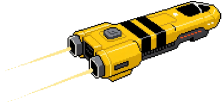Explore >> Select a destination

|
You are here |
artificial-mind.net | ||
| | | | |
mariusbancila.ro
|
|
| | | | | ||
| | | | |
nurkiewicz.com
|
|
| | | | | Clojure is a dynamically, strongly typed programming language. It's a dialect of _Lisp_ running on the Java Virtual Machine. Lisp is 6 decades old and has a really weird syntax. That weird syntax is called _Polish prefix notation_. Basically, in every other language you've used math operators like plus or minus are infix. It means they are placed between operands. For example, `1 + 2`. In Clojure, you always put the operator (or any other function for that matter) in front. So simple addition becomes... `+ 1 2`. | |
| | | | |
hackingcpp.com
|
|
| | | | | Basic techniques and tools for ensuring correctness: compiler warnings (gcc/clang/MSVC), assertions (assert/static_assert) and testing (with some doctest examples). | |
| | | | |
googlecode.blogspot.com
|
|
| | | Dart: a language for structured web programming | ||




